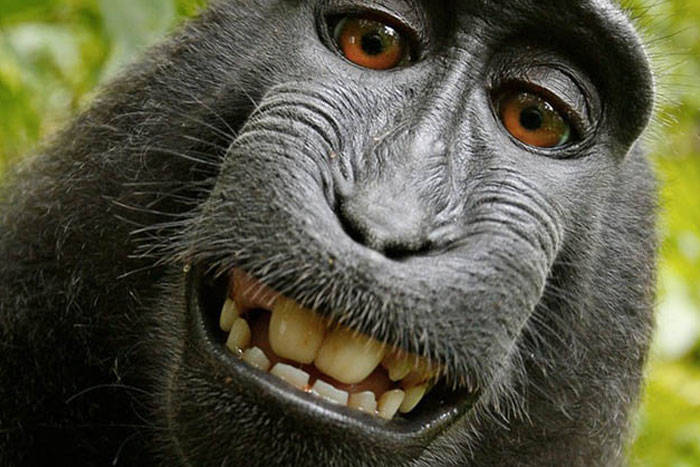TL;DR – Quick Overview
Monkey Town Primate Centre in Somerset West, South Africa, is a premier primate sanctuary home to over 250 primates across 27 species.
Established in 1998, it offers an immersive, educational, and entertaining experience for families and wildlife enthusiasts alike. Visitors enjoy close encounters with monkeys, engaging exhibits, conservation education, and amenities like a restaurant and play areas.
Easily accessible from Cape Town via the N2 highway, Monkey Town is a must-visit for anyone interested in primates and conservation.
The History of Monkey Town
Monkey Town was founded in 1998 by Roseline Grobler, who rescued her first monkey, a brown capuchin named Cebus, over two decades ago. Her passion for primates and animal welfare inspired the creation of a sanctuary where rescued monkeys could live freely and safely.
Over the years, Monkey Town has grown to house more than 270 primates, becoming one of South Africa’s largest primate sanctuaries. The sanctuary’s mission extends beyond rescue to include conservation, education, and public awareness about primate welfare and habitat preservation.
The Primate Species You’ll Encounter
With over 27 different primate species, Monkey Town offers a rare opportunity to see a diverse range of monkeys and apes up close. Key species include:

- Brown Capuchin Monkeys
- Vervet Monkeys
- Squirrel Monkeys
- Chimpanzees
- Lemurs
- Spider Monkeys
Each species lives in carefully designed enclosures that mimic their natural habitats, allowing them to exhibit natural behaviors while ensuring their well-being. The sanctuary’s walkways are enclosed, so visitors can observe primates without disturbing them.
Exploring the Exhibits and Activities
Monkey Town is more than just a zoo—it’s an interactive experience. Highlights include:
Monkey Encounters
Get a unique chance to hug and feed monkeys in the interaction area, a favorite for kids and adults alike.
Enclosed Walkways
Walk through safe, caged pathways that offer intimate views of primates living freely in naturalistic settings.
Family Fun Facilities
Enjoy the rock swimming pool, water slides, trampoline, play park, and a braai venue for a complete family day out.
On-site Restaurant & Gift Shop
Relax and refuel at the restaurant offering refreshments, or take home a souvenir from the gift shop.
Commitment to Conservation and Education
Monkey Town is deeply committed to primate conservation. It collaborates with local and international organizations to support endangered species through breeding programs and habitat preservation initiatives.
The sanctuary’s educational programs are designed to raise awareness about primate welfare, the threats they face in the wild, and the importance of ethical animal care. Guided tours, school outreach, and interactive feeding sessions help visitors of all ages understand the critical role primates play in ecosystems and why their protection matters.
Planning Your Visit to Monkey Town
Monkey Town is open seven days a week, making it convenient for visitors to plan their trip. Here’s what you need to know:
Hours & Admission
Open daily. The entrance fee is approximately R100 per person (check for current rates and child discounts).
Facilities
Restrooms, a restaurant, a gift shop, picnic areas, and family-friendly play zones are available on site.
What to Bring
Comfortable walking shoes, sun protection, and a piece of fruit or vegetable to feed the monkeys (optional but encouraged).
How to Get to Monkey Town
Monkey Town is located just 3 kilometers outside Somerset West, along the N2 highway en route to the Garden Route. The exact address is Mondeor Road, Somerset West, 7130, Western Cape, South Africa.
From Cape Town city center:
- Take the N2 highway heading east towards Sir Lowry’s Pass.
- Continue on the N2 for approximately 45 kilometers.
- Take the exit for Mondeor Road and follow signs to Monkey Town.
The drive typically takes around 40 minutes, depending on traffic.
Frequently Asked Questions About Monkey Town
What is the entrance fee to Monkey Town?
The entrance fee is approximately R100 per person as of 2023. Discounts are available for children and groups. It’s best to check their official website or contact them directly for the latest pricing.
Can I feed the monkeys?
Yes! Visitors are encouraged to bring fruit or vegetables to feed the monkeys in designated interaction areas, enhancing the experience while ensuring animal safety.
Is Monkey Town suitable for children and families?
Absolutely. The sanctuary offers family-friendly activities, play areas, and educational programs tailored for children of all ages, making it a perfect family outing.
Are there other animals besides primates at Monkey Town?
Yes, the sanctuary also hosts a variety of birds, small antelope, koi ponds, and a touch farmyard, adding to the diverse wildlife experience.
Is alcohol permitted at the sanctuary?
Yes, there is a cash bar on-site where visitors can enjoy refreshments responsibly during their visit.
Other Noteworthy Primate Sanctuaries Nearby
If you’re passionate about primates and want to explore more sanctuaries in South Africa, consider these excellent options:
Monkeyland Primate Sanctuary
Located near Plettenberg Bay, Monkeyland is a free-roaming sanctuary with over 550 primates living in 12 hectares of indigenous forest. Visitors enjoy guided forest walks to see primates in a natural environment.
Bushbabies Monkey Sanctuary
Situated near Hartbeespoort Dam, this sanctuary rehabilitates over 90 primates, including spider monkeys and lemurs, offering educational tours through indigenous forests.
Primate Sanctuary in Pretoria North
This sanctuary, located near Johannesburg, focuses on providing a peaceful home for rescued primates and is dedicated to their rehabilitation and care.
Final Tips for Your Visit
Plan to spend at least 3–4 hours at Monkey Town to fully enjoy the exhibits, interactions, and amenities. Bring comfortable shoes, a camera for memorable shots, and an open heart ready to learn about these fascinating creatures. Supporting sanctuaries like Monkey Town helps protect primates and educates future generations on wildlife conservation.
Phone: +27 21 834 5678
Email: info@monkeys.co.za
Social: Facebook | Instagram
Frequently Asked Questions (FAQ)
Is Monkey Town wheelchair accessible?
Yes, the main walkways and facilities are designed to accommodate visitors with mobility challenges. It’s advisable to contact the center ahead for specific assistance requests.
Can I bring my own food and drinks?
Outside food and drinks are generally discouraged to support the on-site restaurant and maintain cleanliness, but special dietary needs can be discussed with the staff.
Are pets allowed at Monkey Town?
For the safety and comfort of the primates, pets are not allowed on the premises.
What is the best time of year to visit?
Monkey Town is open year-round. Spring and autumn offer pleasant weather and active primate behavior, but the sanctuary’s natural environment is enjoyable in all seasons.
Disclaimer: WakaAbuja has made every effort to ensure that the information in this post was correct at the time of publication. However, we do not assume any liability caused by errors such as pricing, hours, or location details. Please consult official websites or social media pages for the most up-to-date information.




